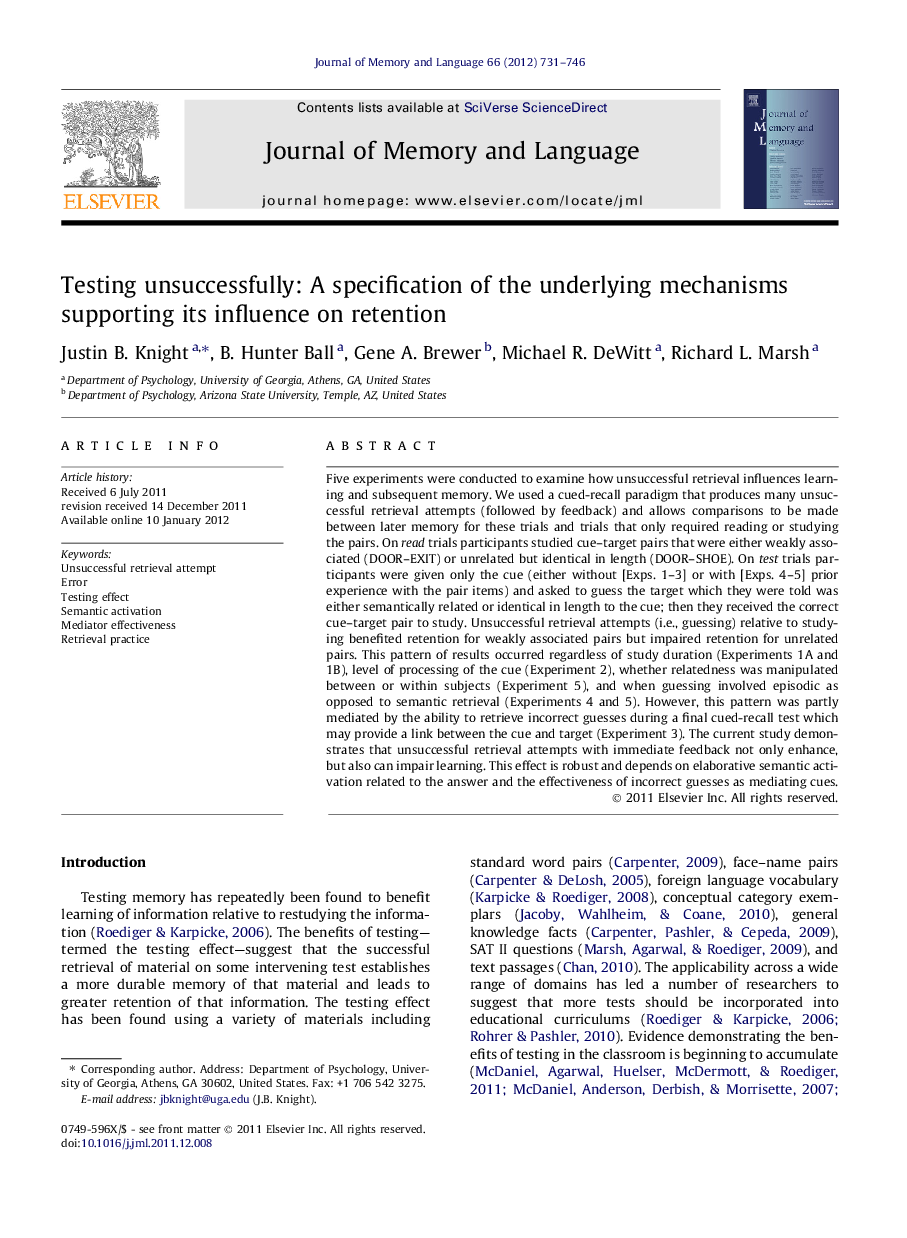| کد مقاله | کد نشریه | سال انتشار | مقاله انگلیسی | نسخه تمام متن |
|---|---|---|---|---|
| 931944 | 923051 | 2012 | 16 صفحه PDF | دانلود رایگان |

Five experiments were conducted to examine how unsuccessful retrieval influences learning and subsequent memory. We used a cued-recall paradigm that produces many unsuccessful retrieval attempts (followed by feedback) and allows comparisons to be made between later memory for these trials and trials that only required reading or studying the pairs. On read trials participants studied cue–target pairs that were either weakly associated (DOOR–EXIT) or unrelated but identical in length (DOOR–SHOE). On test trials participants were given only the cue (either without [Exps. 1–3] or with [Exps. 4–5] prior experience with the pair items) and asked to guess the target which they were told was either semantically related or identical in length to the cue; then they received the correct cue–target pair to study. Unsuccessful retrieval attempts (i.e., guessing) relative to studying benefited retention for weakly associated pairs but impaired retention for unrelated pairs. This pattern of results occurred regardless of study duration (Experiments 1A and 1B), level of processing of the cue (Experiment 2), whether relatedness was manipulated between or within subjects (Experiment 5), and when guessing involved episodic as opposed to semantic retrieval (Experiments 4 and 5). However, this pattern was partly mediated by the ability to retrieve incorrect guesses during a final cued-recall test which may provide a link between the cue and target (Experiment 3). The current study demonstrates that unsuccessful retrieval attempts with immediate feedback not only enhance, but also can impair learning. This effect is robust and depends on elaborative semantic activation related to the answer and the effectiveness of incorrect guesses as mediating cues.
► Investigated unsuccessful retrieval attempts versus studying with word pairs.
► Unsuccessful retrieval facilitates learning when cue and target are related.
► But unsuccessful retrieval impedes learning when cue and target are unrelated.
► False recall reduced by unsuccessful retrieval attempts with related pairs.
► Effects depend on semantic activation and the effectiveness of errors as mediators.
Journal: Journal of Memory and Language - Volume 66, Issue 4, May 2012, Pages 731–746